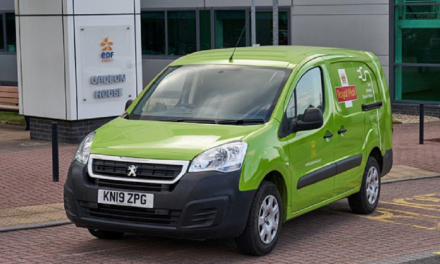
UK Post Offices may lose out from switch to direct banking
Post offices could lose almost half their income because of the government’s decision to pay benefits directly into bank accounts, subpostmasters have warned.
“Fifteen million people each week currently draw their pension over the counter of a post office. If direct payment replaces all of this business, the worst case scenario is that subpostmasters will lose up to 45% of their income,” said Colin Baker, general secretary of the National Federation of Subpostmasters.
Running a post office has become more difficult than ever, in part due to growing competition from supermarkets.
Out of the 16,942 post offices around the country, only 574 of these are run directly by Post Office Ltd. The rest are owned and operated by private business people known as subpostmasters. Royal Mail’s research shows the average subpostmaster earns £29,000.
Post offices are the largest retail network in the country. There is no such thing as a typical post office; they range from rural businesses run from a front room, opening just a few hours a week, to large inner-city offices boasting multiple cashiers. Most rural post offices are run from the same premises as another business, usually a general shop.
Each post office, therefore, has its own business dynamic and levels of profitability. Country post offices tend to make more money selling goods such as food as they are often a village’s only shop. But retail sales are important to the income of all subpostmasters, and are under pressure from supermarkets. “Like any other small trader, subpostmasters are having a very lean time of it at the moment,” said Mr Baker.
The NFS tries to make things easier for its members by offering advice on retailing. The organisation also uses its size to bulk-buy goods cheaply, which members can then buy at reduced prices, through the Subpostmasters’ Trading Club.
Apart from selling sweets, stamps and stationery, the other source of revenue for post offices is payments from the government for over-the-counter trans-actions such as cashing pensions and renewing passports. This business matters most to urban post offices, where customers are more likely to buy food elsewhere.
The payments vary according to transaction. For each pension cashed, for example, a subpostmaster gets 13.2p. This is why there is such an uproar about the changes towards direct payments.
The NFS says the answer is to modernise and embrace financial services. “Today’s post offices have not changed much since the 1950s. We need to get them looking right, with the right products,” said Mr Baker.
In the short-term, subpostmasters will try to encourage customers cashing benefits over the counter to open a basic post office card account. In the longer term, the NFS hopes subpost-masters can metamorphose into bank managers offering a range of banking services.












